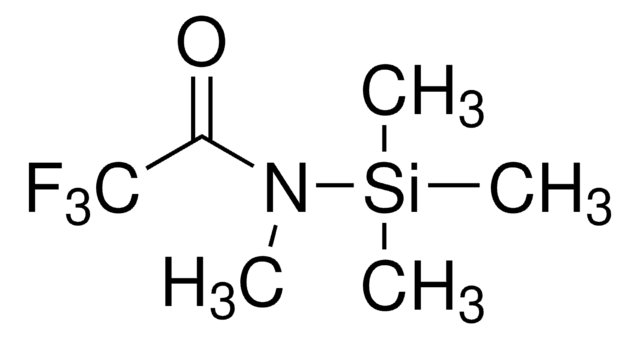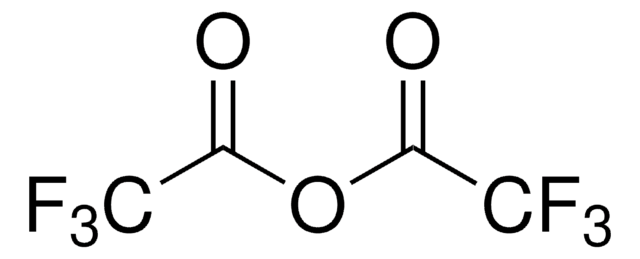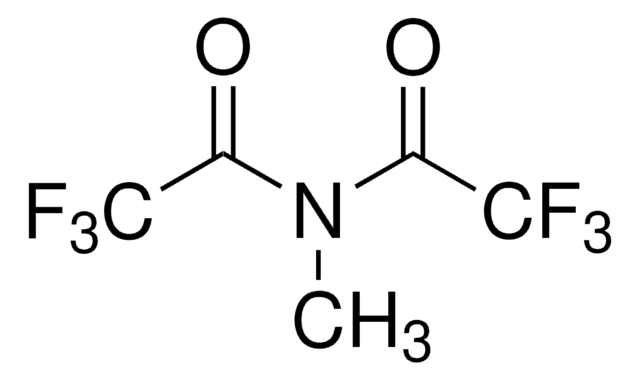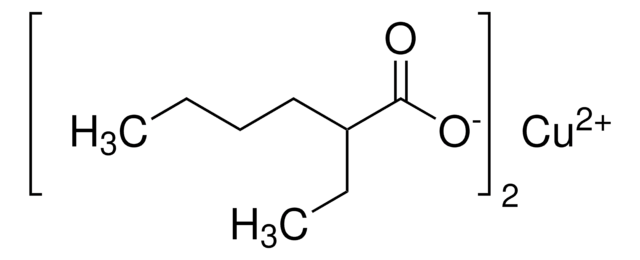375934
N-tert-Butyldimethylsilyl-N-methyltrifluoroacetamide
≥95%, with 1% tert-Butyldimethylchlorosilane
Synonym(s):
MTBSTFA+TBDMSCl, 99:1, N-Methyl-N-tert-butyldimethylsilyltrifluoroacetamide, MTBSTFA + 1% TBDMSCl, Silylating mixture VI
About This Item
Recommended Products
Product Name
N-tert-Butyldimethylsilyl-N-methyltrifluoroacetamide with 1% tert-Butyldimethylchlorosilane, ≥95%
Quality Level
Assay
≥95%
form
liquid
contains
1% TBDMSCl
functional group
amine
fluoro
storage temp.
−20°C
SMILES string
CN(C(=O)C(F)(F)F)[Si](C)(C)C(C)(C)C
InChI
1S/C9H18F3NOSi/c1-8(2,3)15(5,6)13(4)7(14)9(10,11)12/h1-6H3
InChI key
QRKUHYFDBWGLHJ-UHFFFAOYSA-N
Looking for similar products? Visit Product Comparison Guide
Related Categories
Application
related product
Signal Word
Warning
Hazard Statements
Precautionary Statements
Hazard Classifications
Eye Irrit. 2 - Flam. Liq. 3 - Skin Irrit. 2
Storage Class Code
3 - Flammable liquids
WGK
WGK 3
Flash Point(F)
113.0 °F - closed cup
Flash Point(C)
45 °C - closed cup
Personal Protective Equipment
Choose from one of the most recent versions:
Already Own This Product?
Find documentation for the products that you have recently purchased in the Document Library.
Customers Also Viewed
Articles
Results of a study involving the ability few Fluka silylating reagents to form GC-MS-compatible trimethylsilylmethyl derivatives of NSAIDs
Our team of scientists has experience in all areas of research including Life Science, Material Science, Chemical Synthesis, Chromatography, Analytical and many others.
Contact Technical Service







